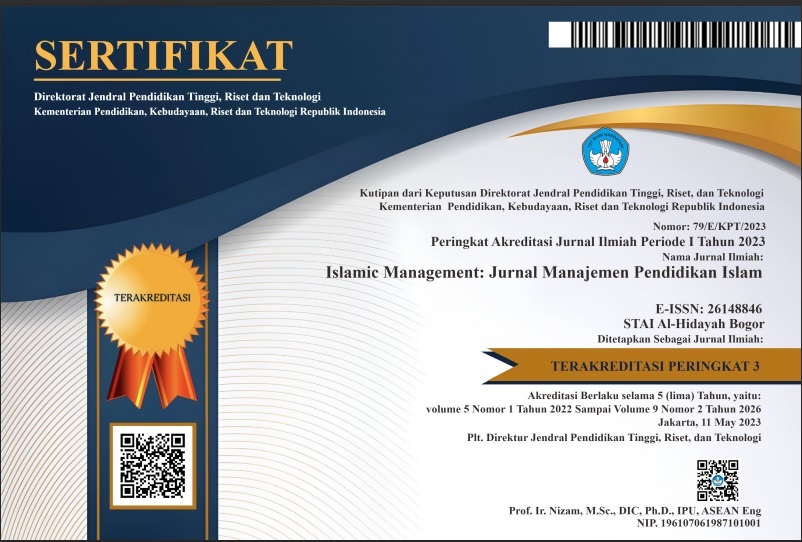THE EFFECTIVENESS OF ISLAMIC EDUCATION LEARNING THROUGH INTERACTIVE APPROACHES FOR GENERATION Z STUDENTS
DOI:
https://doi.org/10.30868/im.v8i01.7789Keywords:
Islamic Religious Education, interactive approach, Generation ZAbstract
Generation Z has unique characteristics that distinguish them from previous generations, such as dependence on technology and preference for dynamic and interactive learning methods. This article aims to examine the effectiveness of interactive approaches in learning Islamic Religious Education (PAI) for Generation Z students. This research uses a qualitative method with a case study approach in several secondary schools in Indonesia. Data were obtained through interviews, observations, and document analysis. The results show that interactive approaches, such as the use of digital media, group discussions, and simulations, can increase students' engagement, understanding, and application of religious values. This article recommends wider implementation of these methods to optimize PAI learning.
References
Brown, H. D. (2007). Teaching by Principles: An Interactive Approach to Language Pedagogy.
Prensky, M. (2010). Teaching Digital Natives: Partnering for Real Learning.
Sugiyono. (2017). Metode Penelitian Kuantitatif, Kualitatif, dan R&D. Bandung: Alfabeta.
Tapscott, D. (2009). Grown Up Digital: How the Net Generation is Changing Your World.
Yusuf, M. (2018). Pendekatan Interaktif dalam Pendidikan Agama Islam. Jakarta: Kencana.
Downloads
Published
How to Cite
Issue
Section
Citation Check
License
Copyright (c) 2025 M. Mulya Zamzam Prasasti Fuadani, Moch. Chotib, Abd. Muhith, Badrut Tamami

This work is licensed under a Creative Commons Attribution-ShareAlike 4.0 International License.
Authors who publish with this journal agree to the following terms:
- Authors retain copyright and grant the journal right of first publication with the work simultaneously licensed under a Creative Commons Attribution License that allows others to share the work with an acknowledgment of the work's authorship and initial publication in this journal.
- Authors are able to enter into separate, additional contractual arrangements for the non-exclusive distribution of the journal's published version of the work (e.g., post it to an institutional repository or publish it in a book), with an acknowledgment of its initial publication in this journal.
- Authors are permitted and encouraged to post their work online (e.g., in institutional repositories or on their website) prior to and during the submission process, as it can lead to productive exchanges, as well as earlier and greater citation of published work (See The Effect of Open Access).






